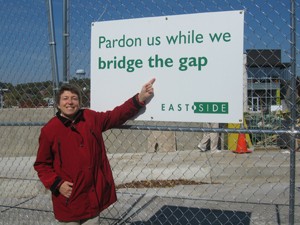The stability of thin films in contact with different materials is a critical issue for a wide range of modern devices, including high-k and low-k dielectric films for transistors and memory in the microelectronics industry, metal electrodes in contact with oxides for fuel cells or sensor/actuator devices, nanometer length-scale metal particles on oxides for catalysis, and material configurations for joins.
There are a number of groups in Europe working on thermodynamic analysis of thin film stability, which usually correlates relative surface and interface energies with segregation and adsorption behavior. While such works can provide important thermodynamic parameters, useful for evaluating the stability of thin films, information on the detailed atomistic structure and chemistry of the same interfaces needs to be correlated with the thermodynamic approach. There are several groups in Europe who use advanced characterization approaches to determine local atomistic structure and chemistry, in addition to theoretical groups who explore interface structure and energy through computational methods.
It is the goal of this project to establish an environment conducive to promoting communication and collaboration between groups using thermodynamic approaches with groups studying the atomistic structure of interfaces, since bridging this particular scientific gap has the potential to generate new design criteria for advanced material systems. The proposed project is based on a core group of European partners, augmented by experts in the field from Japan, the US, India, and Brazil. The MACAN partners have realized that such a form of communication is critical to advancing the field of interface science and interface-based technology.
The core group of partners intends to establish structured vehicles for discussion and dissemination of knowledge via workshops and a summer school, and via scientific exchange between experts in Europe, Japan, the US, India and Brazil. These meetings will be open to the general European public, and identifying additional European and non-European experts is one of the main goals of the general program. While the core group of partners is academic, European industry will be involved in the structured discussions to facilitate identification of key interface-related industrial issues, and to promote transfer of knowledge from the academic environment to European industry.
